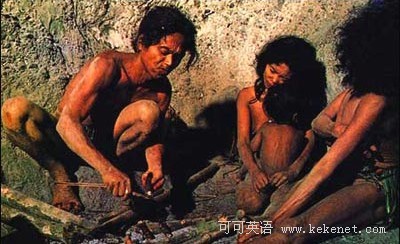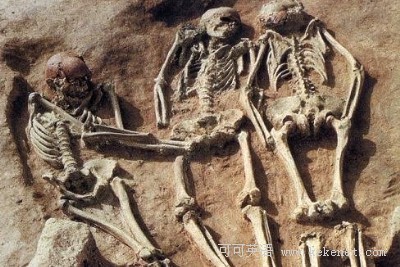(单词翻译:单击)

Digging around in a Spanish cave called Gran Dolina, archaeologists have found butchered humans' fossilized bones. Researchers say the bones show that cave dwellers skinned, decapitated, and enjoyed other early humans, before throwing their remains into a heap with animals bones from other meals.
在西班牙格兰多利纳洞穴发掘时,考古学家日前发现了古人被屠杀后遗留下来的骨头化石。研究人员称这些化石表明,远古时期的穴居人类不仅剥同伴的皮、屠杀同伴,甚至还食用同伴的身体器官,最后将尸体遗弃在他们吃过的动物骨头堆里。
The study says the 800,000-year-old Homo antecessor bones could indicate the most "ancient cultural cannibalism … known until now." Adding to the nightmare: The hungry cavemen had a penchant for kids, since the 11 cannibalized humans uncovered were all youngsters. They speculate that the kiddos were easier to catch, and eating them was a good way to stop competitors from building their families.
研究表明,这些生活80万年前的人类祖先的尸骨揭示了最为“古老的食人文明”。更恐怖的是:饥饿的洞穴古人对食用小孩有强烈的偏好,因为科学家发现11具被食用过的尸体骨头都是属于小孩的。科学家猜测这是因为小孩更容易被抓到,而且吃了对手的孩子可以防止对手繁衍壮大。
Study coauthor José María Bermúdez de Castro, of the National Research Center on Human Evolution, said that marks near the base of some skulls hint that the diners decapitated humans to get the brain goodness inside. "Probably then they cut the skull for extracting the brain…. The brain is good for food."
西班牙“国家人类进化研究中心”研究人员之一的卡斯特罗称头颅底部的刻纹显示这些人曾经被割去了头颅以便食人者从中取得营养骨髓。“也许他们当时是为了人脑才砍头。人脑是相当好的食物。”
The researchers believe that eating other humans wasn't a big deal back then, and probably wasn't linked to religious rituals or marked by elaborate ceremonies. They draw that conclusion from the fact that butchered human bones were tossed in the scrap heap along with animal remains.
研究人员认为远古时代食人并不是什么严重的事情,而且很可能不具有宗教意义。他们之所以得出这个结论,是因为人类骸骨与动物残骸被丢在了一起。
There is some debate as to how frequently human was on the menu, but these researchers note that the Sierra de Atapuerca region had a great climate and that cannibalism didn't likely result from a lack of alternatives.
也有人指出,同类相食并不常见,除非饥饿难耐。但研究人员称格兰多利纳洞穴附近区域气候适宜,食物资源丰富,所以远古人类不太可能因为缺少选择而去食用同类。



